Is it true that Coca-Cola dissolves limescale in a kettle?
Carbonated drinks can remove scale, have a pleasant smell and do not damage the surface of the dishes. Therefore, they are used not only for their intended purpose. What to choose - Coke or Pepsi? The effect will be the same, the main thing is to take a diet drink, since sugar spoils the result by sticking a thin film to the surfaces.
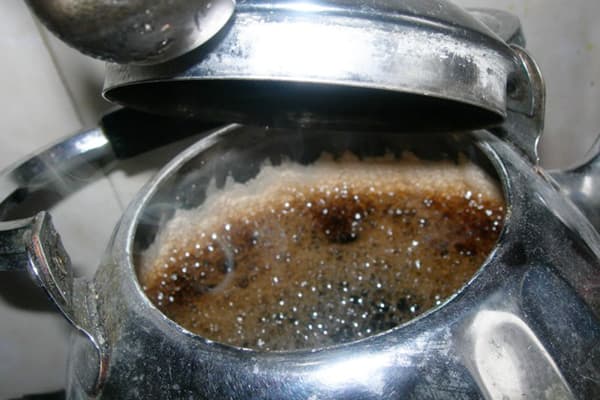
Is it true that Coca-Cola dissolves scale?
Yes it's true. Why does this work? Carbonated drinks contain acids - phosphoric acid, citric acid, ascorbic acid - which, when they come into contact with deposits of mineral salts, destroy them. Heating, duration of exposure and concentration of acids enhance this process.
What dishes can be cleaned with cola? This method is suitable for stainless steel, glass, electric kettles with a disk heater.
You cannot use Coca-Cola for:
- enamel coatings;
- light plastic;
- teapots with open spiral.
The fact is that colored drinks can stain the inner surface of the dishes. And the layer of sediment on the spiral is usually thick - cola will not be enough to wash it completely. After cleaning, the remaining salt deposits will turn brown, which will not add any benefits to the tea.
Cleaning with cola: advantages and disadvantages
In order to remove scale, you will need a bottle of the drink - one and a half to two liters.
What do we have to do?
- Pour water out of the kettle.
- Fill the container halfway. When heated, the soda foams, so you can’t pour it anymore!
- Boil cola in a kettle. After boiling, it is better not to turn off the burner under a regular kettle for 2 minutes. And the electric kettle must be turned on again when the liquid has cooled down a little. Additional heat will speed up the breakdown of deposits.
- Leave the heated drink until it cools. Maybe overnight.
- Wash the inner surface thoroughly to remove any remaining plaque and dyes that have settled on the walls.
- Heat and drain the water for final descaling.
You can increase efficiency by adding a tablespoon of baking soda when boiling.
Why is the method popular? Its advantages:
- no unpleasant odor, as when cleaning with vinegar or store-bought products;
- low costs, the ability to use leftover drinks (leftovers, not boiled portions!);
- gentle effect on the surface of the dishes;
- availability;
- safety for health (even if the kettle is poorly washed after cleaning, poisoning is excluded, since the components of cola are food grade).
But the method also has disadvantages:
- phosphoric acid vapor may irritate the respiratory tract;
- cola only cleans a small deposit; it cannot cope with a thick layer of scale;
- not suitable for all teapots;
- It is necessary to remove the dye from the walls after cleaning.
Thanks to the acids in carbonated drinks, they clean dishes from scale. But the concentration is small, so cola and Pepsi will not cope with a thick layer.
The method of removing plaque with cola is useful if there are few deposits and there are no other means at hand. In other cases, it is more effective and profitable to use acids in their pure form.
Which method should you choose?
Afraid of using chemicals, housewives try to wipe off the plaque with soda and hard sponges. And completely in vain.The method is labor-intensive and damaging to the surface of the dishes. Scale begins to be deposited even faster due to the formation of small scratches on the walls of the kettle.
You can buy products in stores to remove plaque. They cope with the problem quickly, but also have disadvantages:
- when heated, they release vapors that cause eye irritation, coughing, and allergies;
- composition hazardous to health;
- the need to thoroughly rinse the dishes after use, which is inconvenient with electrical appliances - soaking or rinsing them in running water is problematic.
And the prices per bottle are high, considering that not every kettle can be cleaned at once.
The safest of ready-made products contain ingredients that can be found in any kitchen - vinegar, citric acid, soda. It’s easier not to overpay, but to use what you have at home.
To clean off old plaque, citric acid is suitable - the solution can be made concentrated, there are no irritating fumes and a pungent odor, like from vinegar or ready-made products. It is safe to use this method. A packet of powder costs no more than 20 rubles. All scale will dissolve after the first boil - it’s cheaper and more effective than using soda.
Will filters help?
What should I do to prevent sediment from spoiling the kettle and the hostess’s mood? It is impossible to avoid the appearance of scale. It is formed in “hard” water – where there are a lot of calcium and magnesium salts. These substances decompose when heated and form a precipitate. Even when using filtration systems, scale forms, however, more slowly and not as dark as from ordinary tap water.
It seems that there is a way out - to use a liquid with a low concentration of salts. Distilled water is used for medical purposes.But you can’t drink it all the time - minerals will be washed out of bones and teeth, the salt balance will be disrupted, heart problems and convulsions will arise. The mineralization rate is 200-400 mg per liter, which means you need to look for quick and safe methods for descaling a kettle.
Anti-scale protection
How can I make sure that I don’t have to scrub the kettle off for a long time? Following simple rules will help you cope with the problem.
- Clean the kettle once a week. The thinner the layer, the easier it is to get rid of it. Using cola, Pepsi, Sprite, or citric acid, it will take half an hour.
- Rinse the kettle every day to prevent salts from precipitating on the walls and heating element.
- Let the water stand for a day in a jug before boiling.
- Discard the remainder without leaving it overnight.
- Do not boil the same portion of water several times.
- Install a filter or water softening system.
In addition, the right choice of cookware and boiling equipment will help you spend less time and money on maintenance. To do this, you need to choose the right kettle. What do you need to consider?
- Glassware is the most impractical - the coating will be visible within a week.
- An electric kettle should be taken with a closed heating element - it is easier to maintain and will last longer.
- The fewer recesses, grooves, and corners inside the dishes, the better. There is no place for scale to get caught, making cleaning easier.
- Stainless steel, enamel, ceramics are the easiest to clean coatings; they do not absorb foreign odors.
With timely cleaning, equipment and utensils will last a long time, and the family will drink hot drinks without foreign tastes.
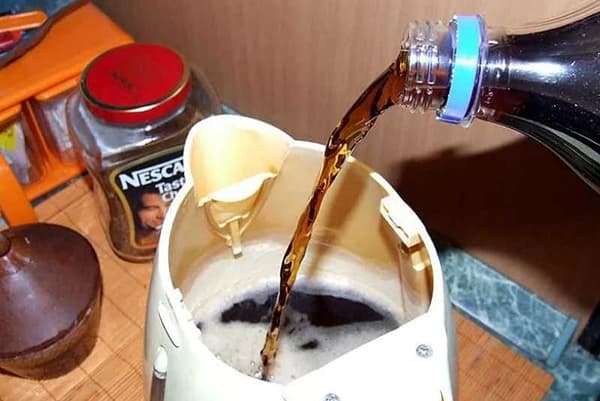
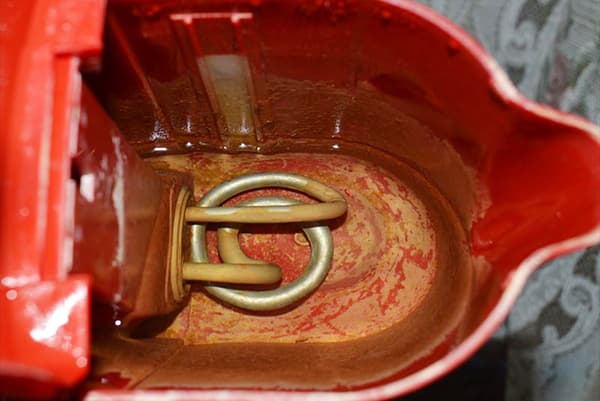
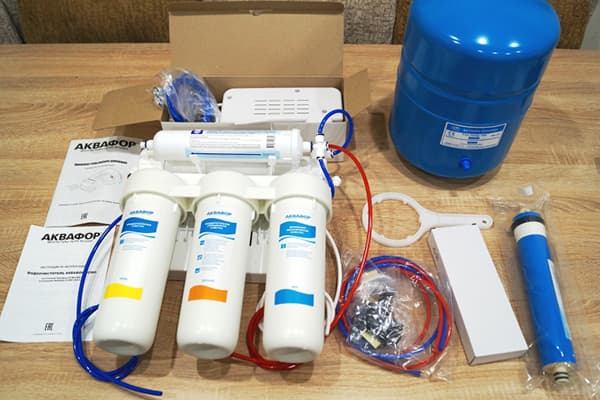
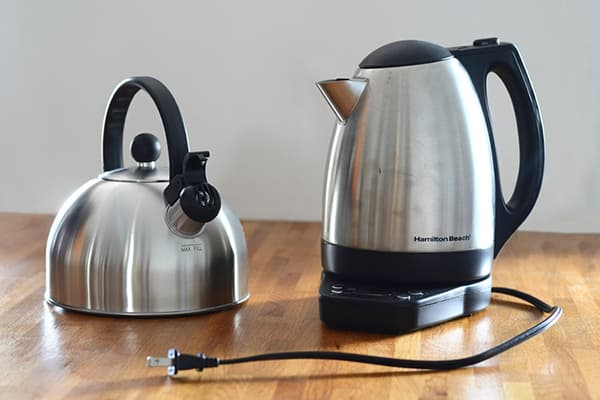
I tried boiling cola in a kettle. After the second attempt, the plaque was all washed away. Great way.